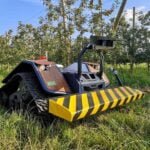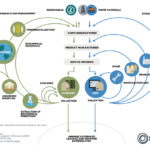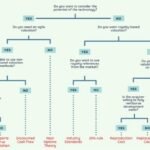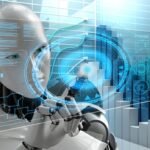
Are you fascinated by the world of data science and eager to pursue a career as a data scientist? Look no further! In this comprehensive guide, we’ll unveil the secrets of this exciting field and provide recommendations to expand your skills and essential knowledge to become a successful data scientist.
Advancements in technology have empowered companies to transform vast amounts of generated data into crucial information for strategic decision-making (da Silveira et al., 2022). Data science is revolutionizing industries and changing the way businesses make decisions. However, extracting meaningful insights from large datasets through statistical analysis, machine learning techniques, and programming requires a trained professional to address these needs.
In the current landscape, data scientists are expected to make sense of the extensive big data warehouses generated in various industries, which are becoming increasingly complex and heterogeneous by nature (Smaldone et al., 2022). This has led to the Data Scientist becoming a more attractive and well-compensated profession (Ramzan et al., 2021).
According to the 2020 US Emerging Jobs Report, as cited by LinkedIn in its “Jobs on the Rise in 2021” report, the demand for data scientists and data engineers has an average annual growth rate of 35%. In the ranking of the top 50 jobs in the United States for 2021 by Glassdoor, the average annual salary for a data scientist is $113,736.
Whether you’re a beginner or already have experience in data science, this guide will take you on a journey from basic to advanced concepts to become a data scientist.
What is a Data Scientist?
A Data Scientist is a professional who utilizes scientific methods, data analysis, and algorithms to extract knowledge from large datasets. In this sense, they are responsible for translating raw data into actionable information that businesses can use to make more informed, data-driven decisions, allowing them to enhance their products, services, and strategies.
In simple terms, we can define a Data Scientist as a professional tasked with combining various knowledge domains to analyze data collected from the web, smartphones, clients, sensors, and other sources to derive useful insights.
As a data scientist, you will be at the forefront of this revolution, leveraging your expertise to drive innovation and solve complex problems in different companies with the advent of Industry 4.0.
What Does a Data Scientist Do?
Data scientists play a crucial role in organizations by using their analytical skills to extract valuable information from data and provide practical recommendations. They work closely with stakeholders to understand business objectives and develop data-driven solutions. Data scientists also possess the ability to effectively communicate their findings, translating complex technical concepts into understandable insights for non-technical stakeholders.
Functions and Responsibilities
The functions and responsibilities of a Data Scientist may vary based on the company and industry, but generally include:
- Data collection and cleaning
- Data analysis
- Development of predictive models
- Data visualization
- Communication of results
What are the main tasks of a Data Scientist?
Discover Data Science highlights that the main tasks of a data scientist include:
- Gathering massive amounts of data and converting them into an easily analyzable format.
- Solving business-related problems using data-based techniques and tools.
- Using a variety of programming languages and software for data collection and analysis.
- Having extensive knowledge of analytical techniques and tools.
- Communicating findings and providing advice through effective data visualizations and comprehensive reports.
- Identifying patterns and trends in data, providing a plan for implementing improvements.
- Predictive analysis; anticipating future demands, events, performances, trends, etc.
- Contributing to data mining architectures, modeling standards, reporting, and data analysis methodologies.
- Inventing new algorithms to solve problems and building analytical tools.
- Recommending profitable changes to existing procedures and strategies.
Skills required to become a data scientist
Becoming a data scientist requires a diverse set of skills spanning both technical and non-technical competencies. Della Volpe and Esposito (2020) emphasize that the role of a data scientist requires a unique combination of skills, generally comprising a strong foundation in data science and an innate talent for synthesizing complex ideas, thereby addressing decision-making processes in organizations.
Discover Data Science indicates that a data scientist must be part mathematician, part computer scientist, and part business strategist. They must also have experience in different disciplines, as this professional processes large amounts of data to discover trends (Liu, 2015).
Provost and Fawcett (2013) highlight that successful data scientists must be able to view company problems from a data perspective to propose strategies that improve business management.
A study by Erkan et al. (2023) concludes that employers seeking to hire a data scientist prefer individuals skilled in machine learning, data science, Python, SQL, R, statistics, and mathematics. They also prefer candidates with educational levels of bachelor’s, master’s, and doctoral degrees, with over 3 years of work experience and knowledge of visualization techniques, data mining, prediction, NLP, and clustering.
While technical skills are essential for data manipulation and analysis, non-technical skills are equally important for effective communication and problem-solving. Below is a more detailed description of the skills you need to develop to become a data scientist:
Technical Skills
Data scientists must have a strong foundation in mathematics and statistics, as these form the basis of many data science techniques. A solid understanding of probability, linear algebra, and calculus is crucial for working with complex algorithms and models. Additionally, data scientists must master programming languages such as Python or R, as they are widely used in data science for data manipulation, analysis, and machine learning.
Another important technical skill for data scientists is knowledge of databases and SQL (Structured Query Language). Data scientists often work with large datasets stored in databases, and SQL allows them to retrieve and manipulate data efficiently. Familiarity with big data technologies like Hadoop and Spark is also valuable, as they enable data scientists to work with massive datasets that cannot be processed with traditional methods.
Non-Technical Skills
In addition to technical skills, data scientists must possess certain non-technical skills that are essential for success in this field. Effective communication is crucial, as data scientists need to explain complex concepts to non-technical stakeholders and present their findings clearly and concisely. They must also have strong problem-solving skills, as they will encounter complex business problems that require innovative solutions.
Moreover, data scientists must be curious and have a passion for learning. The field of data science is constantly evolving, and data scientists need to stay updated with the latest advancements and techniques. They should be proactive in seeking new knowledge and continuously improving their skills.
What to study to become a Data Scientist?
Several educational paths aspiring data scientists can take to acquire the necessary skills and knowledge. While a traditional degree in computer science, mathematics, or statistics is valuable, it’s not the only path to becoming a data scientist. Many successful data scientists come from diverse backgrounds and have acquired their skills through self-study, online courses, and training boot camps.
Traditional Degree Programs
Obtaining a bachelor’s or master’s degree in computer science, mathematics, or statistics provides a solid foundation in the theoretical concepts and principles of data science. These programs typically cover topics such as algorithms, probability, statistics, machine learning, and data analysis. A degree from an accredited university can enhance your credibility and open doors to job opportunities in this field.
Online Courses and Bootcamps
Online courses and boot camps offer a flexible and cost-effective way to acquire the skills needed for a career in data science. Platforms like Coursera, edX, and Udacity provide a wide range of courses in data science, machine learning, and programming. These courses are often taught by industry experts and provide hands-on experience through projects and assignments.
Bootcamps, on the other hand, are intensive programs that offer immersive data science training over a short period. These programs are designed to provide practical skills directly applicable to industry needs. While they may not provide the same depth of theoretical knowledge as a traditional degree, they can be an excellent option for those looking to enter the field quickly.
Self-Study
Self-study is another viable option for aspiring data scientists, especially for those who prefer a more flexible and independent learning approach. Numerous resources are available online, including textbooks, tutorials, and online communities, that can help you learn the necessary skills at your own pace. However, self-study requires discipline and self-motivation since there is no formal structure or guidance.
Regardless of the educational path you choose, it’s essential to complement your learning with hands-on experience. Building a portfolio of projects and participating in Kaggle competitions can showcase your skills and help you stand out in a competitive job market.
Roadmap to Become a Data Scientist
If you prefer autonomous learning, here’s a roadmap to develop your skills as a data scientist:
Fundamental Skills
- Mathematics and Statistics: Linear Algebra, Probability, Statistics
- Domain Knowledge: Develop an understanding of the domain where you want to apply Data Science.
Data Manipulation and Analysis
- Data Visualization: Matplotlib and Seaborn (Python) or ggplot2 (R)
- Exploratory Data Analysis (EDA): Learn to analyze and visualize data to gain insights.
Basic Machine Learning Concepts
- Introduction to ML: Understand concepts of supervised and unsupervised learning.
- ML Libraries: Scikit-Learn (Python) or Caret (R)
- Model Evaluation: Metrics such as accuracy, sensitivity, specificity, and F1 score.
Advanced Machine Learning
- Deep Learning: TensorFlow or PyTorch
- Ensemble Learning: Random Forests, Gradient Boosting
- Model Deployment: Understand how to deploy models in production.
Big Data Technologies
- Spark: Learn distributed computing for processing large datasets.
Databases and Data Storage
- SQL Databases: MySQL, PostgreSQL
- Data Storage: Understand data storage concepts.
Cloud Platforms
- AWS, Azure, or Google Cloud: Learn to work with cloud platforms for scalable data solutions.
Version Control
- Git: Understand version control for collaboration.
Collaboration and Communication
- Jupyter Notebooks: Collaborative coding environment.
- Documentation: Effectively share findings through documentation.
Continuous Learning and Specialization
- Stay Updated: Regularly update your skills in this rapidly evolving field.
- Specialization: Focus on specific areas such as Natural Language Processing (NLP), Computer Vision, or Time Series Analysis.
Build a Portfolio
- Projects: Work on real-world projects to showcase your skills.
- GitHub: Create a repository on GitHub for your portfolio.
Networking
- Online Communities: Join platforms like Kaggle, Stack Overflow, and LinkedIn groups.
- Conferences and Meetups: Attend industry conferences and local meetups.
This roadmap is a general guide, and individuals can progress at their own pace. Continuous learning, hands-on projects, and the creation of a portfolio are essential for a successful journey in the field of data science.
Where to study data science?
If the high demand and salaries achieved by data scientists have motivated you to pursue professional training or continue with master’s or doctoral studies, there is a wide variety of study programs available in the market at different prices.
Likewise, below we provide you with a list of professional training, master’s programs, or courses in data science.
| Academic Level | University | Program |
|---|---|---|
| Bachelor’s | Stanford University | Bachelor of Science in Statistics (Data Science Track) |
| Massachusetts Institute of Technology (MIT) | Bachelor in Computer Science and Statistics | |
| University of California, Berkeley | Bachelor of Arts in Data Science | |
| Master’s | Harvard University | Master of Science in Data Science |
| Stanford University | Master of Science in Statistics (Data Science Track) | |
| Columbia University | Master of Science in Data Science | |
| Doctorate | University of California, Berkeley | PhD in Data Science |
| Carnegie Mellon University | PhD in Data Science | |
| University of Michigan | Ph.D. in Scientific Computing (Data Science Track) |
Data Science Certifications and Online Courses
Certifications and online courses can be valuable credentials to showcase your expertise in data science. Below are some popular certifications and online courses in data science:
Certifications
- Microsoft Certified: Azure Data Scientist Associate Validates skills in using Azure tools and technologies for data science.
- IBM Data Science Professional Certificate: Covers various data science topics, including Python, data analysis, machine learning, and data visualization.
- Google Data Analytics Professional Certificate: Focuses on data analysis and visualization using Google tools like BigQuery and Data Studio.
Online Courses
- Coursera Data Science Specialization: Covers fundamentals of data science, including statistical analysis, machine learning, and data visualization.
- edX Data Science MicroMasters: Comprehensive curriculum covering data science topics such as probability, statistics, machine learning, and data analysis.
- Udacity Data Science Nanodegree: Provides hands-on experience in data manipulation, analysis, and machine learning using Python and R.
Platforms
- Kaggle: Platform for data science competitions and collaboration.
- DataCamp: Offers interactive tutorials and coding challenges for learning data science.
These certifications and online courses can enhance your knowledge and skills in data science, with many of them also providing opportunities to work on real-world projects.
Steps to Become a Data Scientist
Becoming a data scientist is a journey that requires continuous learning and practice. Here are the steps you can take to embark on this exciting career:
Define Your Goals:
Start by defining your professional goals and understanding what motivates you to become a data scientist. This will give you a clear sense of direction and help you stay focused throughout the journey.
Acquire Necessary Skills:
Identify the skills required to become a data scientist and create a learning plan accordingly. This may involve enrolling in degree programs, online courses, or self-study. Remember to focus on both technical and non-technical skills to develop a comprehensive skill set.
Gain Practical Experience:
Practice is crucial for mastering data science. Seek opportunities to work on real-world projects through internships, freelance work, or personal projects. Building a portfolio of projects will not only enhance your practical skills but also showcase your expertise to potential employers.
Network and Collaborate:
Networking is an essential aspect of any career, and data science is no exception. Join online communities, attend meetings and conferences, and connect with professionals in the field. Collaborating with others can provide valuable learning opportunities and open doors to new possibilities.
Stay Updated on Trends:
Data science is a rapidly evolving field, and it’s important to stay updated on the latest trends and techniques. Follow industry blogs, read research articles, and participate in online forums to stay informed about the latest advancements and best practices.
Learn and Improve Continuously:
Data science is a lifelong learning journey. Even after securing a job as a data scientist, it’s important to continue learning and improving your skills. Maintain curiosity, seek new challenges, and take advantage of growth and development opportunities.
Comparison of Data Scientists, Data Analysts, Data Engineers, AI Engineers, and Machine Learning Engineers
Here is a comparative table of the roles of Data Scientist, Data Analyst, Data Engineer, AI Engineer, and Machine Learning Engineer. Keep in mind that these roles may vary in different organizations and contexts, and some responsibilities may overlap.
Table comparing Data Scientists, Data Analysts, Data Engineers, AI Engineers, and Machine Learning Engineers
| Feature | Data Scientist | Data Analyst | Data Engineer | AI Engineer | Machine Learning Engineer |
|---|---|---|---|---|---|
| Main Focus | Predictive and prescriptive analysis using advanced machine learning models and statistics. | Exploratory data analysis and report generation. | Design and construction of data processing systems. | Development of solutions mimicking human intelligence. | Development of specific machine learning models and algorithms. |
| Common Tasks | Development of machine learning models, and data exploration. | Report creation, dashboarding, descriptive data analysis, and visualization. | ETL (Extract, Transform, Load), data modeling, database optimization. | Development of deep learning models, natural language processing, and computer vision. | Design, implementation, and optimization of machine learning algorithms. |
| Technical Skills | Programming (Python, R), statistics, machine learning, big data, visualization tools. | Excel, SQL, data visualization, basic statistics. | Programming (Python, Java, Scala), big data, databases, ETL. | Programming (Python, Java, C++), machine learning, deep learning, and natural language processing. | Programming (Python, Java, C++), machine learning, advanced statistics, optimization. |
| Non-Technical Skills | Effective communication, data-driven decision-making, critical thinking. | Effective communication, data-driven decision-making, and critical thinking. | Interdepartmental collaboration, business skills, communication. | Strategic thinking, problem-solving, ethics. | Complex problem-solving, and analytical skills. |
| Typical Education | Master’s or Ph.D. in statistics, data science, or related fields. | Bachelor’s or Master’s in statistics, data science, or similar fields. | Bachelor’s or Master’s in computer science, engineering, or related fields. | Master’s or Ph.D. in artificial intelligence, machine learning, computer science. | Master’s or Ph.D. in machine learning, computer science, or similar fields. |
| Common Industry | Finance, health, technology, retail. | Any industry requiring data analysis. | Technology, finance, health, and e-commerce. | Technology, research, development. | Technology, research, development. |
It is important to note that these descriptions are general, and specific responsibilities and requirements may vary depending on the company and industry. Additionally, the field of artificial intelligence and machine learning is constantly evolving, and the boundaries between these roles can sometimes become blurred.
On the other hand, Bonesso et al., (2022) found that, compared to data analysts, data scientists more frequently use certain competencies related to self-awareness, teamwork, networking, flexibility, systemic thinking, and lateral thinking. Similarly, Liu (2015) emphasizes that the data scientist has a holistic view, unlike the traditional data analyst.
Conclusion
Whether you are an aspiring data scientist or simply interested in understanding the field, this article has provided you with a comprehensive guide to the core concepts and applications of data science. As technology continues to advance and the volume of data grows, data science will continue to play a vital role in shaping the future.
In conclusion, data science is a dynamic and exciting field that offers endless possibilities. It has the power to transform industries, drive innovation, and solve complex problems. By acquiring the necessary skills and knowledge, you can embark on a fulfilling career as a data scientist.
In this comprehensive guide, we have explored the role of a data scientist, the skills needed to become one, and the educational paths you can take. We have also discussed the steps to become a data scientist, the tools and technologies used in data science, and the importance of practical experience through projects and case studies.
Furthermore, we have highlighted the value of certifications and online courses in data science, as well as the various professional opportunities available in the field. Whether you are a beginner or already have experience in data science, this guide has provided you with essential information to unleash the power of data science and embark on your journey to become a data scientist.
Remember, becoming a data scientist is a journey of continuous learning. Keep the curiosity alive, keep learning, and take advantage of the endless possibilities that data science offers. Good luck on your data science adventure!
References
Bonesso, S., Gerli, F. and Bruni, E. (2022), “The emotional and social side of analytics professionals: an exploratory study of the behavioral profile of data scientists and data analysts“, International Journal of Manpower, Vol. 43 No. 9, pp. 19-41. https://doi.org/10.1108/IJM-07-2020-0342
da Silveira, C. C., Marcolin, C. B., da Silva, M., & Domingos, J. C. (2020). What is a Data Scientist? Analysis of core soft and technical competencies in job postings. Revista Inovação, Projetos e Tecnologias, 8(1), 25-39.
Della Volpe, M., & Esposito, F. (2020). How universities fill the talent gap: The data scientist in the Italian case. African Journal of Business Management, 14(2), 53-64.
Erkan, I., Sadullah, Ç., & Dilek, Ö. Y. (2023). Analysis of Skills and Qualifications Required in Data Scientist Job Postings Based on the Pareto Analysis Perspective Using Text Mining. EKOIST Journal of Econometrics and Statistics, (39), 10-25.
Liu A. 2015. Data Science and Data Scientist. IBM Analytics. 11 p.
Provost F. and T. Fawcett. 2013. Data Science and its Relationship to Big Data and Data-Driven Decision Making. Big DataVol. 1, No. 1 https://doi.org/10.1089/big.2013.1508
Ramzan, M. J., Khan, S. U. R., Khan, T. A., Akhunzada, A., & Naseeb, C. (2021). A Conceptual Model to Support the Transmuters in Acquiring the Desired Knowledge of a Data Scientist. IEEE Access, 9, 115335-115347.
Smaldone, F., Ippolito, A., Lagger, J., & Pellicano, M. (2022). Employability skills: Profiling data scientists in the digital labour market. European Management Journal, 40(5), 671-684.





